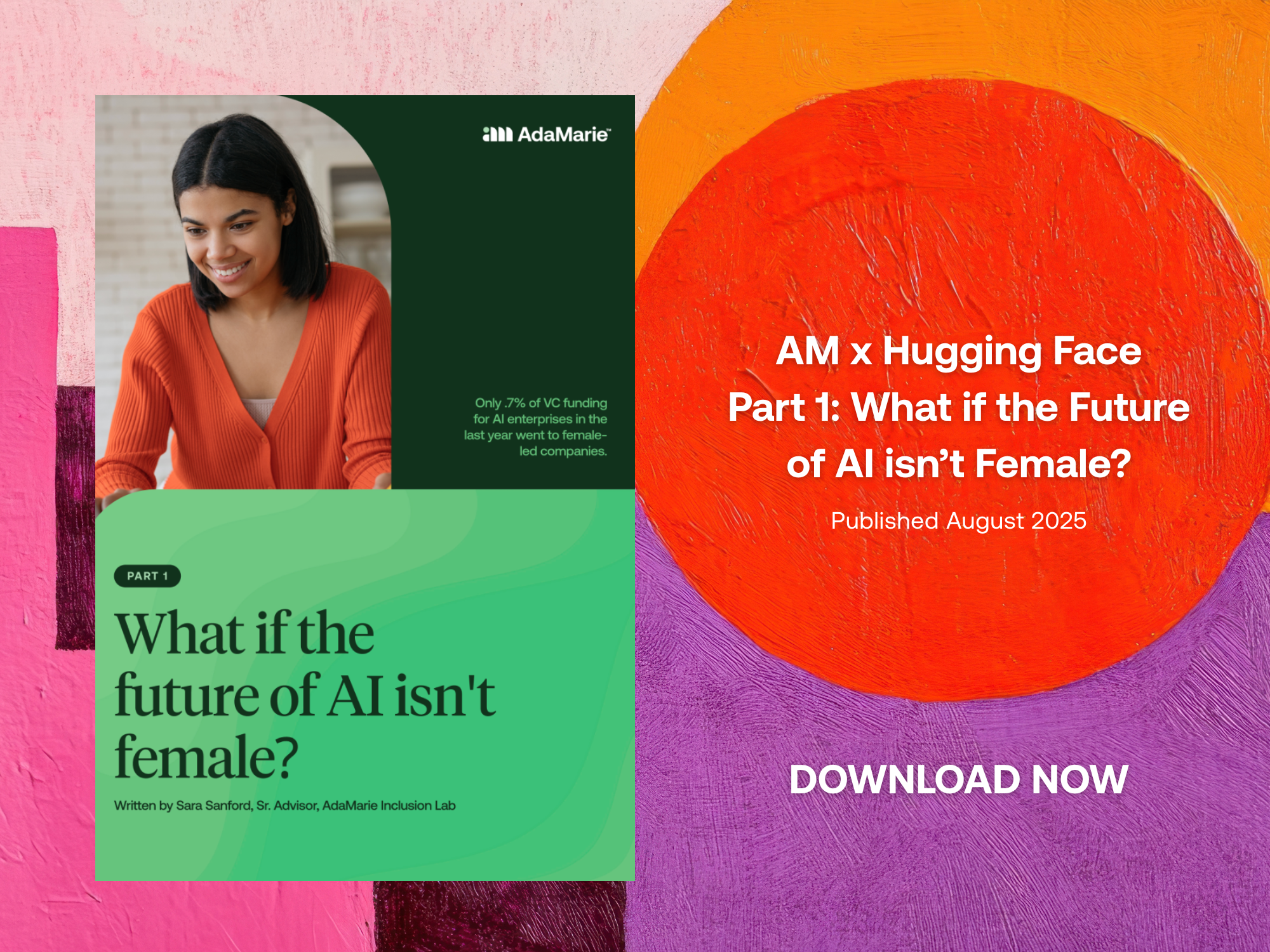What If the Future of AI Isn’t Female?
Artificial intelligence is shaping the future of every industry, but what happens if that future isn’t inclusive?
Our new white paper, What If the Future of AI Isn’t Female?, explores the risks of gender imbalance in AI development and leadership, and what it will take to build smarter, fairer, and more sustainable technology.
“Only 0.7% of VC funding for AI went to female-led companies last year.”
That stat tells a bigger story: as AI rapidly expands, systemic inequities are getting coded into its foundation. Without intervention, the technology of tomorrow risks repeating—and amplifying—the inequities of today.
Inside the White Paper
Here’s a preview of what you’ll uncover:
Bias In, Bias Out. AI trained on unchecked data doesn’t just replicate bias—it multiplies it. From soap dispensers that don’t recognize darker skin tones to biased healthcare algorithms and criminal justice tools, underrepresented groups are most at risk.
Meritocracy is a Myth. Women’s code is rated higher than men’s across major languages but only when gender is hidden. The issue isn’t the “pipeline,” it’s systemic bias.
Homogenous Leadership = More Risk. When women are excluded from AI leadership, innovation, ethics, and sustainability suffer. Homogenous teams share blind spots and miss critical risks.
Diverse Teams Build Better AI. Companies like Hugging Face and Uplevyl prove that balanced, inclusive teams lead to smarter, more responsible AI—and healthier business outcomes.
What’s at Stake
This is more than a conversation about representation. It’s about whether AI will reinforce old inequities or help us solve them.
Through case studies, myth-busting research, and actionable steps, this paper lays out what’s at risk if we continue on the current path, and what’s possible if we prioritize inclusion.
The AdaMarie Method for Meaningful Inclusion
From this research, we developed The AdaMarie Method for Meaningful Inclusion, a clear process that helps organizations identify and dismantle systemic bias at the organizational level, not just the interpersonal one.
If your company is ready to harness the power of women in STEM and build more equitable technology, let’s talk. We pride ourselves on meeting employers where they are.

